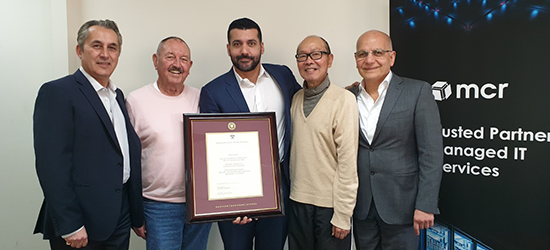The 1 key insight I learned from Harvard that Small Businesses need to know
I completed the OPM (Owner/ President Management) course at Harvard Business School recently and I wanted to share the main insight I learned from my experience – something that I feel people will gain from as much as I did.
As a CEO of a small business that is striving to grow, this course offered a deeper understanding into the SME world that I can now pass on to both my own organisation and all of my clients and connections who are in the same situation too.
The reality of small business
Most people understand that building and running a successful business can be a very consuming challenge that leaves little time to focus on expansion, leadership and personal growth.
When you’re in a small business, making the right decisions is crucial, as each choice can make or break the organisation – and I don’t have to tell you how much pressure that comes with.
The OPM Course is specifically designed for owners and managers of smaller businesses from around the world to come together, collaborate and learn from each other.
As the CEO of a family-owned and operated business, mcrIT, I completely understand the mounting challenges that small businesses face on a daily basis.
I put my heart and soul into seeing mcrIT achieve success year on year and I know I’m not alone – my clients, my business partners and other SME owners are all doing the same thing.
Over the three years of undertaking the OPM course, I was in a class of 180 global SME Managers and Founders, and this experience gave me a whole new perspective on the true nature of smaller businesses.
Do you want to know what I realised?
We all share the exact same challenge, globally.
Of all of those 180 unique and completely separate businesses, each with their own industry, style and model, the one thing that united us was one particular challenge: people.
From Europe and the UK, to America, Canada, New Zealand and Australia, the main difficulty that everyone raised over and over again was people – or more specifically, internal staff.
“How do you find the right people, with the right attitude, passion and skills who you can trust with your operations?”
This was the key insight, and I realised that my small business and those of my clients have the same concern too.
Sure, mcrIT sells them IT Hardware solutions and IT Managed Services, but in the end, my team need to be skilled enough to provide these products and services, and their teams need to be able to learn and implement them.
Without the right people, small businesses just can’t successfully grow.
I’m very fortunate to be surrounded by a great team at mcrIT. But finding them is never easy, and I’m sure you can probably relate.
Small business: it all comes down to people
If you want to grow, you have to understand that you can’t do it alone. This means that at some point, you will have to relinquish control to others.
This is where the challenge arises.
You can’t watch everyone 24/7. No one has that time (or desire, really). Your objective is to find the right fit, train them well and encourage them to be at their best. Then you have to trust them to be able to maintain that side of your operations while you go manage your own priorities.
No matter what niche you’re in, it’s your internal teams that will make or break your business.
As Sir Richard Branson says: “Clients do not come first. Employees come first. If you take care of your employees, they will take care of the clients.”
Turns out that this is as close to the mark as you can possibly be.
How do we solve this challenge?
To help other people in similar positions to my own, here are some of the strategies we came up with at Harvard Business School to help overcome this challenge and achieve healthy business growth.
- Shift your perspective
What I mean is, staff are not an expense but an asset. Changing this mindset is the first step to building a great foundation to grow from. - Make your internal team a priority
As a small business manager or owner, you usually have your hands full with sales or operations that you just expect the people side to function. But, it’s never that easy. In fact, your people should be your top priority, and not the department that gets overlooked. - Don’t rush the hiring and induction process
Yes, we’re all super busy and deadlines are always there. However, if you speed through the hiring and onboarding process, you’re increasing your risks. Hiring the wrong person will leave you regretting it for months and will cost you significant time and cost in the process.
Save yourself the hassle and map out a thorough hiring method that allows the time to find the best talent who will fit your business and offer the most potential.
- Invest in your people
Again, they’re not an expense but an asset. Not to overquote Sir Branson, but this says it all: Train people well enough so they can leave, treat them well enough so they don’t want to.Encouraging your team’s careers and spending resources to upskill them is so essential if you want to progress your small
business forward.
- Build this mentality into your culture
From the top-down, if you encourage, nurture and lead people, this naturally trickles down into other levels of management, team leaders and individuals to become part of the business’ culture. Then, this approach will become engrained well into the future. Lead by example and you’ll reap the rewards.
All you have to do is look at the most successful large organisations right now- Google, Facebook, Apple, Tesla, Amazon – what do they all do well? They search for, hire, train and retain the very best people.
As SMEs, we need to all take a leaf out of their well-worn and proven books.
At mcrIT, we get small businesses. Because we are one ourselves. This helps us provide our clients with the right solutions – and we are proud of this fact; especially now after I’ve done that OPM course and become a Harvard Alumni.
What are your thoughts?
I’d welcome comments and opinions on how you manage the challenge of people and strategies you’ve tried that have either worked or succeeded.
Thanks for reading.







Leave A Comment